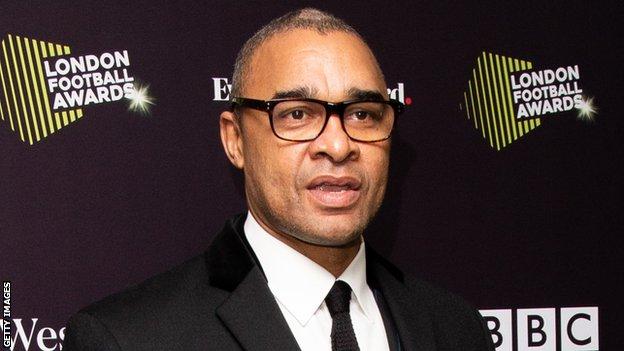FA launches diversity code to increase BAME and female representation
BAME #BAME

 Paul Elliott has been developing the new diversity code over the past five months in his role as head of the FA’s inclusion advisory board
Paul Elliott has been developing the new diversity code over the past five months in his role as head of the FA’s inclusion advisory board
Football clubs will be required to meet a recruitment diversity target of 15% in new executive jobs and 25% in coaching roles under a code devised by the Football Association.
The Football Leadership Diversity Code aims to tackle racial inequality in the English game.
It also hopes to increase the number of female coaches in women’s football.
Paul Elliott, head of the FA’s inclusion advisory board, says the new code will “hold football to account”.
At present, only five of the 92 Premier League and English Football League (EFL) managers or head coaches are BAME.
Nineteen of the 20 Premier League clubs have agreed to the voluntary code so far, with Southampton the only exception.
The Saints say they are “wholly supportive” of the code’s objectives but are waiting to see how it fits in with the Premier League’s own Advanced Equality Standard before revising their recruitment processes, which they say are the culmination of a “five-year equality and diversity journey”.
More than 40 clubs have signed up in total, including sides from the EFL, Women’s Super League and Women’s Championship.
In doing so, the clubs agree that:
Former Chelsea and Aston Villa defender Elliott, who helped develop the code, told BBC Sport: “We want to create greater diversity in leadership positions.
“We are trying to modernise football so it stops relying on its ‘little black book’ and group of networks and actually give equal opportunities to those who are qualified.
“This isn’t about tokenism, this is about equal opportunities. To be the same as everyone else.
“What really inspired me to create the code was a comment from Raheem Sterling, when he said he looks up to the directors and senior leadership and doesn’t see people like him.
“Also Jermain Defoe. He’s had such a wonderful career and has thoughts about being a coach, but wonders whether it is worth getting qualified as he doesn’t think he will get a job.
“We’ve lost three generations of players who have been denied opportunities, we can’t lose a fourth.”
The code was developed over a five-month consultation period, with Elliott speaking to a number of leading players in the men’s and women’s game, including Harry Kane, Tyrone Mings and Lucy Bronze, to ensure it is as diverse and inclusive as possible.
Clubs will have to publish their diversity data each year and, should they not meet the requirements, give reasons why.
Elliott is confident more clubs will sign up once they have seen the details and economic benefits it will bring.
“This is a journey and based on initial conversations we have had,” he said. “So I’m sure post this launch they will see not just the social and human upside of the code but the economic benefits of a diverse workforce.
“Football clubs are businesses, they want to be representative of their playing base and their fanbase.
“Football owns this code, this is for the whole of football so it was important our consultation reflected that.”